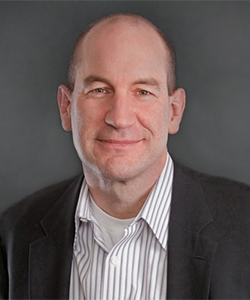 Oct. 7, 2015 – “Biotechnology” has many word substitutions, such as life science, biotech, or bioscience, and its origins go back not decades but rather thousands of years. Early ancestors manipulated living organisms to make products like cheese and beer, selectively bred animals and plants to improve crop yields and livestock productivity, and tinkered with scientific processes and methods to explore natural healing therapies.
Oct. 7, 2015 – “Biotechnology” has many word substitutions, such as life science, biotech, or bioscience, and its origins go back not decades but rather thousands of years. Early ancestors manipulated living organisms to make products like cheese and beer, selectively bred animals and plants to improve crop yields and livestock productivity, and tinkered with scientific processes and methods to explore natural healing therapies.
Flash forward through time, and the biotech industry is a booming source of cutting-edge innovations involving health care, agriculture, and the environment. And lawyers play an important role in bringing these innovations to the world.
“This is an expanding industry with expanding potential for attorneys,” said Lisa Johnson, chief executive officer at BioForward, an association of Wisconsin biotechnology companies. “Especially now with health care IT in the mix, it’s all converging into this mega industry, and Wisconsin is one of the biotech hubs.”
Why is Biotech Relevant to Lawyers?
Biotech is becoming increasingly important to the American and global economies. Lawyers are central to this growth, providing a linking thread through government, industry, and university efforts to grow this sector. With its explosive growth in university research and technology transfer to business development, Wisconsin is a microcosm of what is going on nationally.
This conference brings together the diverse voices of the global biotechnology industry – government, university, law, and business – to learn from each other and build a foundation for mutual success. It is the place to forge connections.
Why Come to the Event?
The conference offers a unique opportunity for an interdisciplinary and international conversation about the issues central to the creation, promotion, and expansion of American biotechnology in a global context.
Attendees will have the opportunity to talk to preeminent national and international speakers and attendees about current issues in biotech, get hands-on experience through excursions and expositions, and network with colleagues. Continuing legal education credits are also available.
Why the State Bar of Wisconsin?
The State Bar of Wisconsin believes that the legal profession is central to the growth of the biotech industry. Lawyers provide critical counsel and transactional skills to ensure that biotechnology science moves forward in a safe and ethical manner.
Because the legal profession is central to the growth of the biotech industry, State Bar of Wisconsin PINNACLE® is hosting the inaugural 2016 Biotech and the Law Global Conference and Expo, May 5-7, 2016 at the Monona Terrace in Madison.
Not the typical State Bar event, the conference’s multidisciplinary approach will connect state, national, and international players in law, science, business, and government to network and discuss issues, obstacles, and opportunities in the biotech industry.
What is Biotechnology?
Biotechnology has numerous definitions. One source describes biotechnology as the “use of living systems, organisms, or parts of organisms to manipulate natural processes in order to develop products, systems, or environments to benefit people.”1 Another says biotechnology “harnesses cellular and biomolecular processes to develop technologies and products that help improve our lives and the health of our planet.”2
These definitions encompass the industry descriptions of bioscience and life sciences.
The health care bioscience industry has broad applications, such as developing therapeutics and vaccines to address diseases, evolving viruses and other maladies. Through gene research, scientists can isolate DNA traits that cause or resist illnesses and develop drugs to change gene behavior.
The same is true in other sectors, like agricultural, industrial, or environmental biotechnology. Based on DNA science and other disciplines, researchers can develop new ways to improve crop production, prevent pollution, or create renewable biofuels.
But the research is just one aspect of the biotech industry as a whole. The invention, development, and manufacturing of life science tools, devices, machines, and software are subsectors of the broader biotech or bioscience industry.
And Wisconsin is a biotech hub. Approximately 1,600 biotech companies are based in Wisconsin, mostly in Milwaukee and Dane counties, employing about 36,000 workers and having a multiplier effect of an additional 70,000 jobs. Only the energy industry has a higher multiplier effect, according to BioForward.3 As major research and development continues, Wisconsin can reap the benefits.
“If we can continue to attract and retain top researchers and faculty at our internationally acclaimed research institutions, there is no question that Wisconsin will continue to be a great place for bioscience companies,” Johnson said.
Lawyers Needed
Johnson is no stranger to the life science industry. In 1989, she linked up with three scientists to launch Novagen Inc., which developed and manufactured life science reagents used to diagnose and treat disease and to discover new therapeutics and diagnostics.
Novagen started in the Madison-based MGE Innovation Center at the University Research Park. The Research Park supports commercialization of intellectual property arising from U.W.-Madison research and provides facilities to biotechnology start-up companies.

“This is an expanding industry with expanding potential for attorneys,” says Lisa Johnson, chief executive officer at BioForward. “Especially now with health care IT in the mix, it’s all converging into this mega industry, and Wisconsin is one of the biotech hubs.”
Johnson wasn’t a scientist. She was a finance major who was enlisted to help Novagen with business operations. “I washed dishes. I helped them in the lab. I took customer orders and shipped products. When you are with a start-up company, there’s no job that you won't do,” she said. “You do everything just to get a company off the ground with ongoing revenue and profitability."
Johnson held many different operational and administrative positions primarily focused on business development and managed SBIR grants and debt-financing deals while the company continued to develop its products. But when the time came, she called a law firm to help with patents, trademarks, and more complicated original equipment manufacturers (OEMs), distribution, and partnership contracts.
“As the company grew and we encountered more legal issues, including regulatory issues, I stayed with the law firms that were behind us at the earliest stages. These small biotech start-ups will stay loyal to those lawyers and law firms who help them in the beginning,” she said. Due to these critical interactions with their attorneys, Novagen was able to protect its IP, trademarks and support revenue generation through well designed partnership agreements.
“We had universities and pharmaceutical companies all over the world buying our products,” Johnson said. “Anyone doing research and development would have been purchasing Novagen products as they expressed and purified proteins, including major research institutions such as NIH and UW-Madison.”
Eventually, a large, multinational chemical/pharmaceutical company based in Germany acquired Novagen as part of its portfolio, thus ending the life-cycle of an emerging growth biotech company. Johnson stayed with Novagen for 19 years, rising to vice president of U.S. corporate development for the German company's North American operations.
As more start-up bioscience companies, like Novagen, launch their technologies and innovations in Wisconsin and throughout the world, more attorneys will be needed to help them navigate the complex legal issues specific to the life science industry.
“These companies need help with start-up formation, patents and trademarks, equity raises, debt financing, regulatory, employment, and litigation issues, to name a few,” Johnson said. “Attorneys who recognize the value of where this industry is heading will be in a good position to expand their practice in both the short and long term."
Meeting Demand

“There are a lot of joint ventures and developments initiatives with bigger companies that are in this space. ... I spend a lot of my time negotiating and structuring these deals,” says Madison attorney Matthew Storms who left a big firm to start AlphaTech Counsel S.C.
Madison attorney Matthew Storms saw the potential in the biotech sphere when he left a big firm to start AlphaTech Counsel S.C., a small law firm that focuses on emerging tech companies specifically, including biotechnology start-up companies.
Understanding the financial challenges that biotech and other technology-enabled start-ups are facing, AlphaTech Counsel offers fixed fee packages to cover typical start-up business law work, including corporate formation, stock and nondisclosure agreements, and funding advice.
“They are fun to work with,” said Storms. “They have significant ambitions for changing the world, and I want to play a part in helping them do that.”
“In focusing on the needs of these types of companies, we spend considerable time building systems that support them,” Storms said.
For example, AlphaTech Counsel has developed automation tools that enable them to deliver customized documents to biotech companies more quickly, at less cost, and with better accuracy than a conventional approach of relying on manually modifying forms.
“A lot of what we do is investor finance-related,” he said. “And we do a lot of licensing work. When a company gets to a point where they want to have others manufacture their product or combine it with other products, there’s often a licensing component.”
“There are a lot of joint ventures and developments initiatives with bigger companies that are in this space. So you see a company like Johnson & Johnson, Allergen, or 3M who will partner with these smaller companies. I spend a lot of my time negotiating and structuring these deals.”
Storms said working in this area requires him to know the players, especially the investors and strategizers. “We are helping connect people,” he said. “We are very familiar, especially in the upper Midwest, with who the various investors are and who is interested in what types of opportunities.”
 Joe Forward, Saint Louis Univ. School of Law 2010, is a legal writer for the State Bar of Wisconsin, Madison. He can be reached by email or by phone at (608) 250-6161.
Joe Forward, Saint Louis Univ. School of Law 2010, is a legal writer for the State Bar of Wisconsin, Madison. He can be reached by email or by phone at (608) 250-6161.
Storms took a fair amount of science and math classes as a psychology and economics major in college, and he actually coded much of the firm’s automated systems. But what his firm does not do is patent or regulatory work. For that, he reaches out to other lawyers.
“We are connected with folks who regularly do that work,” Storms said. “At the appropriate time, we make introductions and connect the dots.
“A lot of law firms dabble in this area but don’t understand the industry and how the norms of the industry can impact even basic agreements of deal structures,” he said.
“For example, a conventional investor financing for a biotech company is very different from one for a manufacturing company. Having lawyers learn things for the first time can cost companies a lot of time and money, especially if the lawyers don’t have the right forms or don’t know how to advise in situations that are pretty common.”

“You have these really dynamic people, and these inventors and they spend a lot of time working in all areas of invention,” says Charles Sara, a registered patent attorney at Dewitt, Ross & Stevens. “My job is to vet it to determine whether it’s patentable, and create a patent application that adequately describes the invention and its novel features.”
Securing the Patent
Biotechnology companies with new inventions or products usually need someone like Charles Sara, a registered patent attorney at Dewitt Ross & Stevens S.C. Sara graduated from George Mason University Law School in 1981, and saw the opportunities ahead.
“Biotech patent law was pretty much in its infancy at that point,” said Sara, who moved to Madison in 1986. “Now it’s very important. Companies are constantly trying to invent new processes and products relating to biotech.”
Sara nearly completed a master’s degree in dairy science (at Virginia Tech) before attending law school, so he had the science requirements necessary to pursue patent law. Out of nearly 100 law students in his class, only one other classmate had the necessary technical background to become a patent attorney. “I liked the odds,” he said, “I was not competing for the same law firm openings as the rest of my class.”
When he moved to Madison, there were only four or five patent attorneys in town. Now there are substantially more, which are needed to support the state’s booming biotech industry.
“It’s fun,” he said. “You have these dynamic people, inventors who spend a lot of time working in all areas of innovation. They develop something they are excited about. My job is to vet it to determine whether it’s patentable, and create a patent application that adequately describes the invention and its novel features.”
“If we can’t do that correctly, then there’s a very good chance that it won’t go through the Patent Office and a patent won’t issue,” he said. “We have to put it in a particular format that’s going to withstand a critical review by a Patent Office examiner.”
That’s not the only challenge. Sara said patent law is constantly evolving, with recent court cases making it more difficult to obtain patents, or invalidating existing patents.
“You have to constantly be monitoring cases, rules, and regulations,” he said. “I find that to be frustrating, but very interesting. It keeps me going. Nothing ever gets stale in this practice.”
“Also, many large biotech companies are losing their patent rights mainly because they have a limited life span,” Sara said. “These companies are desperate to find the new technology to stay in the market. That presents a big opportunity for inventors and patent attorneys.”
Biotech and the Law Conference
Sara, along with Lisa Johnson of BioForward, is on the planning committee for the 2016 Biotech and the Law Conference and Expo, presented by PINNACLE.
“This is going to be a great conference,” Sara said, “because it is designed to pool all sides of the biotech industry, bringing researchers, company owners, and attorneys together in one place to meet and learn together.”
Sara noted that the Biotech and the Law Conference won’t just be for patent attorneys. It will benefit business attorneys with an expertise in developing funding or structuring deals, regulatory attorneys, employment attorneys, and other attorneys who are interested in learning about the biotechnology industry and expanding their practices areas.
“Small companies will show up in an effort to show off their wares, and bigger companies will be looking for those new patent opportunities,” Sara said. “It’s also a great opportunity for us to meet young attorneys who we may want to hire.”
Endnotes
1 The New Zealand Biotechnology Learning Hub.
2 Biotechnology Industry Organization.
3 2015 Wisconsin Bioscience Economic Development Report.
